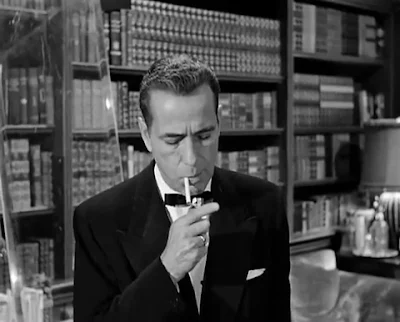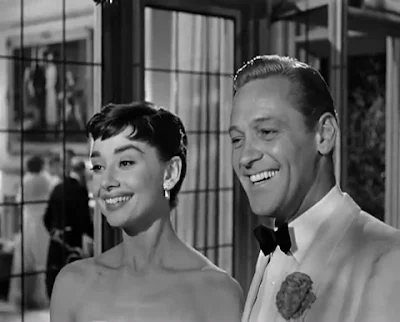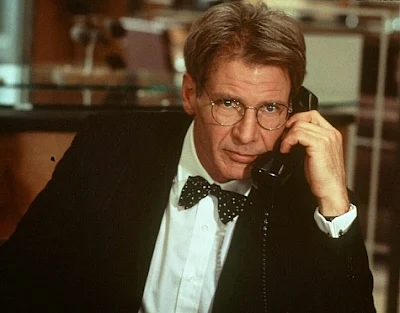My introduction to Charles Dickens' second book (by the way the first one is The Pickwick Papers, a book I'm yet to read) was back in 1987. First, via an animated musical adaptation, I very dimly remember a simplified edition I borrowed from a cousin. My first take on the book was the moving story of a boy born in a workhouse and brutalised from the moment he could walk and talk; overworked, almost starved to death and had the misfortune of falling into a gang of thieves but miraculously rescued first by Mr. Brownlow and then by Rose and Mrs. Maylie. The whole time I couldn't stop feeling so bad for poor Oliver and hating those who hurt him so much; Mr. Bumble, that odious creature Noah Claypole, Fagin, Bill Sikes and his crazy half-brother, Monks.
Junior Secondary School, I found the complete edition in the school library and more things were revealed; Rose Maylie was Oliver's aunt- sister of Oliver's mother Agnes who had had a relationship with Monk's father, Edwin Leeford; who unfortunately was still married, hence the cause of the chain of events. Monks wanted to ruin Oliver as much as possible and take hold of the money allocated to him. And it turned out Oliver wasn't only Monks and his mother's intended victim, their hatred for Agnes Fleming- Oliver's mother- was so great that Rose, her younger sister, was to be ruined as well but divine intervention in the shape of Mrs Maylie prevented it and Oliver was taken under their wing, to Monks' great fury and then Mr Brownlow- after getting valuable information from Bill Sikes' mistress- Nancy, pierced the pieces together. In the end, Rose got married and Oliver lived happily and free with Mr. Brownlow.
There have been many adaptations of this story but the only one that stayed true to the book was the 1985 TV series starring Ben Rodska as Oliver Twist and Lysette Anthony as Rose Maylie (This actress played Florence Dombey in an adaptation of one of Dickens' other books- Dombey and Son).
But I'm not talking about the adaptations here- but the book. For years I've reread this book without stopping to figure out the reason why Dickens wrote it to begin with. Recently, I read it again after finishing Dombey and Son and I thought more about the main character, Oliver. These days, well in my country, anytime anyone mentions the name 'Oliver Twist', there's the talk about the memorable scene where he walked up to the cook, held up his bowl and asked for more and the name's synonymous to anyone who is not satisfied. If they read the book thoroughly, they would discover that he was chosen to ask for more after the boys drew lots after suffering near starvation... who would be satisfied with just one spoon of gruel- or whatever the hell the children were given as food?
But I'm still digressing... what is the message behind Oliver Twist?
For starters, I noticed something about Oliver that I didn't ponder much on at first- despite everything he went through in that child abuser's (Mrs. Mann) place, in the workhouse and in Mr. Sowerberry's, those experiences did not harden him. He was hurt emotionally and physically but not exactly broken to the extent he would become cold, and hard and turn to crime; he remained innocent and resistant to pressure to become a criminal from Fagin. When Bill Sikes and Nancy took him back to Fagin's house, all he cared about was Mr. Brownlow and Mrs. Bedwin's opinion of him, he begged Bill Sikes- even though that bastard had a gun to his head- not to make him an accomplice to the robbery about to be committed in the Maylies' house; he preferred death to vice. The only time when he lost control was when Noah Claypole insulted his late mother, causing Oliver to punch him out defending his late mother's honour, rather than his own. Other than that, no thoughts of revenge against his oppressors, only the need for kindness and a happier life. And Oliver hoped his friend Dick would be rescued too and nursed back to health but after returning to the Workhouse to end the mystery behind his birth, he is given sad news; Dick had died.
Charles Dickens no doubt was trying to show that vice is caused by the environment a person finds himself in. Born in poverty and no other prospects- the person no doubt would turn to stealing just to be able to eat. Dodger and Charley Bates advised Oliver to allow himself to be trained by Fagin, but Oliver refused. Apparently, Dodger and Bates were born in the same circumstances and their circumstances made them the way they were. But Oliver wasn't like that at all and we don't see him struggle with doing the right thing or giving in to crime, committing a crime does NOT come to him at all. Maybe the message here is that being good or bad is inborn; it may not always be caused by circumstances.
However, look at another character, Nancy. Nancy was influenced by her environment and the people in it, Fagin especially. She was trained by Fagin to be a thief when she was a child, as a young woman she's a prostitute and living with Bill Sikes- a robber and a sociopath. Is Nancy evil? Okay, unlike Oliver she succumbed to crime at an early age but I wouldn't call her evil. She's rough in speech but from the start is protective of Oliver even after she helps Fagin abduct him (Sikes made her); she stops Fagin from beating him and stands up to Bill, telling him to keep the dog away from Oliver. Oliver's gentle face is usually regarded with pity or scorn, Nancy was clearly moved by Oliver's innocence and didn't want it corrupted by Fagin. There's a scene in the book where she drunkenly tells Fagin that she can't bear to look at Oliver's face, she does not speak with repulsion, Oliver is clearly someone she wishes she was and it further reminds her what she was. This led her to see Rose and tell her what she had overhead between Fagin and Monks and Fagin; a heroic act that cost her her life. Nancy had a chance to have a new life but she turned it down, feeling she was so deep in crime already that she was beyond redemption... which wasn't true.
Dickens talked a lot about the workhouse and how the paupers there are treated, they are made to work and fed very little- begging on the street is punishable by imprisonment. He was talking, or rather condemning Britain's Poor Law of the time. In the book, Mr Bumble scathingly says Oliver and the other paupers were ungrateful and it was made to look as if the paupers were granted a huge favour. In the 1985 adaptation, Harry Maylie commented, 'May God forgive parliament for that wretched Poor Law'. Just by asking for more, Oliver was flogged and locked away, and five pounds offered to anyone who would make him an apprentice. No doubt, that was what went on during the era of the Poor Law, the funds allocated to the upkeep were misappropriated, the conditions so inhumane and, as described in the book, many of the workhouse inmates died.
And there was the issue of the stigma of illegitimate children. Oliver was bitterly described by Monks as 'their (Edwin and Agnes) bastard child'. Ironic, considering Monks is an evil man who actually paid Fagin to make Oliver a thief to prevent him from inheriting his share of their father's money. For a long time, Rose thought she was illegitimate (she was very young when Agnes and their father died), thanks to a lie by Monk's mother to the people who took Rose in, which caused them to treat her very unkindly. Mrs. Maylie didn't hold it against her, nor did Harry Maylie, who was in love with her. But Mrs Maylie was afraid of how Rose would be treated by society if Harry married her as he was planning on going into politics. Harry insisted he didn't care about society's opinion but Mrs. Maylie's fear was also about him- he could turn on Rose and regret marrying her if society continued to sneer at his wife; a fear unfounded because Harry's love for Rose was firm. Rose in turn didn't want to be the cause of Harry's reputation being ruined- although she found out she was legit, there was still the matter of her sister Agnes' affair with a married man (she of course did not know he was married until much later when she was carrying Oliver)- so Harry willingly turns his back on city life and politics and becomes a priest in the country and he and Rose are married at last. Children are not responsible for their parents' sins and such not be treated like they are, another message from Dickens.
There is a lot to learn from Oliver Twist and more about the character that meets the casual eye. I no longer see it as a rags-to-riches story, more like an example of social criticism. It's a must-read for the uninitiated.
Quote from the book:
Let the tears which fell, and the broken words which were exchanged in the long close embrace between the orphans, be sacred. A father, sister, and mother, were gained, and lost, in that one moment. Joy and grief were mingled in the cup; but there were no bitter tears: for even grief arose so softened, and clothed in such sweet and tender recollections, that it became a solemn pleasure, and lost all character of pain.


.jpg)

.jpg)


.jpg)
















